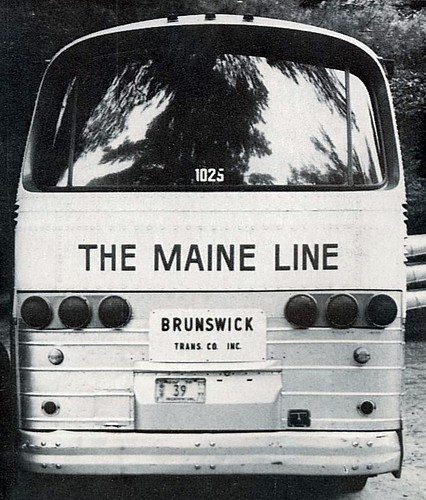 In today’s hyper-fast, multi-tasking world, one of the great attractions of camp is tradition. Each camp passes down its own stories and lore. Campers appreciate that they’re enjoying some of the same activities, in the same way, as campers before them have done for generations.
In today’s hyper-fast, multi-tasking world, one of the great attractions of camp is tradition. Each camp passes down its own stories and lore. Campers appreciate that they’re enjoying some of the same activities, in the same way, as campers before them have done for generations.
But few people realize just how much history the camp industry embodies.
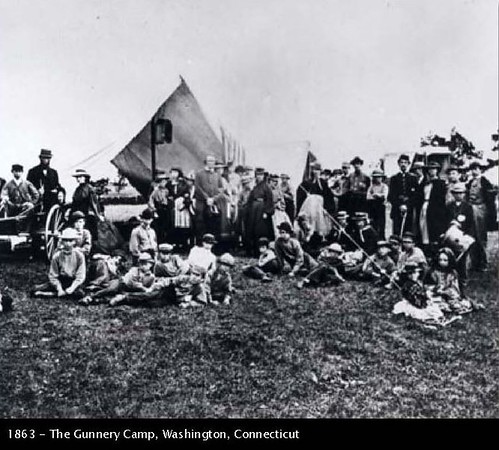 The first camp – called the Gunnery – was founded in 1861 in Washington, Connecticut. That’s right — camping is as old as the Civil War, and this year celebrates its 150th anniversary. Early campers enjoyed boating, fishing and trapping. It’s pretty impressive that two of those activities survive at camps, a century and a half later.
The first camp – called the Gunnery – was founded in 1861 in Washington, Connecticut. That’s right — camping is as old as the Civil War, and this year celebrates its 150th anniversary. Early campers enjoyed boating, fishing and trapping. It’s pretty impressive that two of those activities survive at camps, a century and a half later.
An 1876 camp was created to take “weakly boys” into the woods. We wouldn’t use those terms today – but camps still serve all kinds of children, in all kinds of ways. And we’re still in the woods.
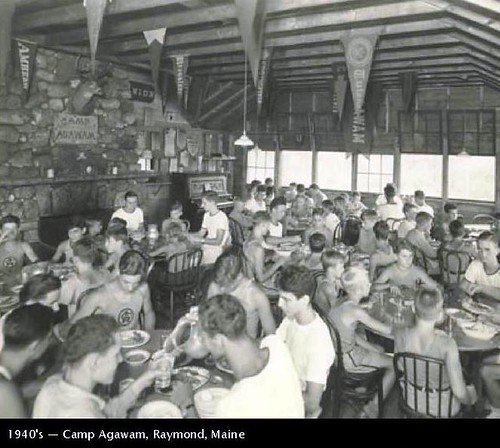 The first YMCA camp was Dudley, in 1885. It’s still around – the longest continually operating camp in the United States. Scores of other camps date back to the late 19th and early 20th centuries.
The first YMCA camp was Dudley, in 1885. It’s still around – the longest continually operating camp in the United States. Scores of other camps date back to the late 19th and early 20th centuries.
With over 100 camps – some dating back 100 years, welcoming scores of camping “generations” – Maine has long been one of camping’s most popular states.
Boasting crystal-clear lakes, pine forests, mountains and (don’t worry) moose, Maine is (like camping itself), “easy to get to, but very difficult to leave.”
Camping boomed nationally in the 1950s and 60s – along with much of post-war America. In 1948 the American Camping Association adopted Standards – the basis for ACA camp accreditation. There are currently 300 Standards for health, safety and programs. They’re recognized by courts and government regulators – a seal of approval for any camp to which parents entrust their most precious possessions.
The ACA was a pioneer in anti-discrimination resolutions. The first was adopted in 1950. Since then, the industry has continued to emphasize youth development. Camp directors constantly study research in areas like child and adolescent development, and risk prevention. They understand that positive experiences, strong relationships, challenging opportunities and solid personal values are vital to helping young people grow into healthy, caring and responsible adults.
Frederick W. Gunn and his wife Abigail might not have used terms like those 150 years ago, when they founded The Gunnery Camp. But they intuitively understood the many benefits that camping provided. All of us in this important industry proudly honor the traditions of the past.
My colleagues and I will not be here 150 years from now to carry them on.
But we’re confident our successors – and our camps – will.
Sincerely,
Jeffrey
Guest Blogger and former Maine camper and counselor
*Historical photos courtesy of the American Camp Association – www.acacamps.org


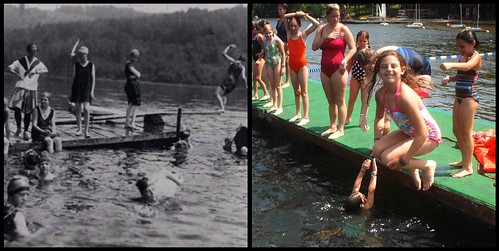
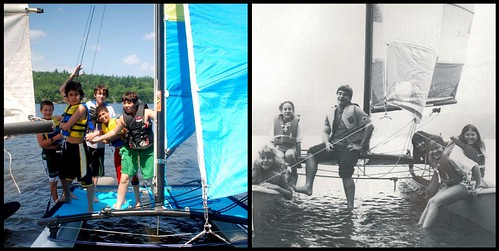
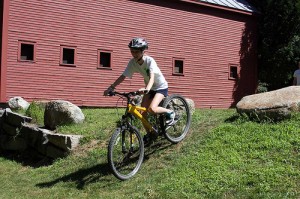
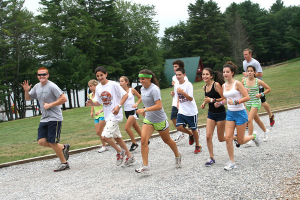
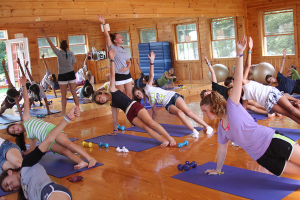
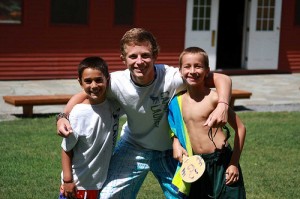
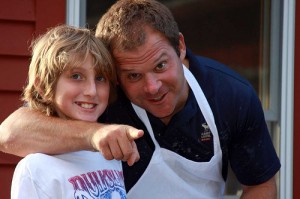
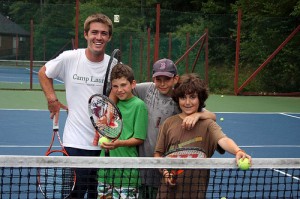
 When I think about “camp songs,” I immediately think about singing around campfires, but each year at camp also has a distinct popular music soundtrack. Recently, campers weighed in on Twitter about the tunes that remind them of past summers and that got me thinking about what the United States and camp was like in the 1960s and 1970s.
When I think about “camp songs,” I immediately think about singing around campfires, but each year at camp also has a distinct popular music soundtrack. Recently, campers weighed in on Twitter about the tunes that remind them of past summers and that got me thinking about what the United States and camp was like in the 1960s and 1970s.
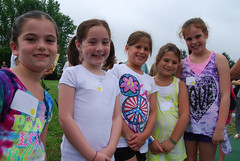
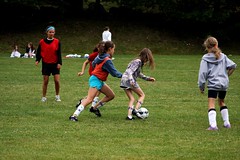 As parents, we are always on the lookout for experiences that help our children learn new skills. We enroll them in music lessons, martial arts, sports, theatre, choir and, of course, summer camps. But we all know that the best programs (and the best educational experiences) are ones that go beyond the basics of teaching skills to help develop our children’s character. The basics of character — trustworthiness, respect, responsibility, fairness, caring and citizenship — are all essential ingredients in summer camp experiences.
As parents, we are always on the lookout for experiences that help our children learn new skills. We enroll them in music lessons, martial arts, sports, theatre, choir and, of course, summer camps. But we all know that the best programs (and the best educational experiences) are ones that go beyond the basics of teaching skills to help develop our children’s character. The basics of character — trustworthiness, respect, responsibility, fairness, caring and citizenship — are all essential ingredients in summer camp experiences.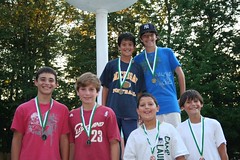 Everything we’ve written about on this blog so far — being ready for camp, unplugging from the digital world, traveling to camp, developing interpersonal communication skills, interacting with camp counselors, participating in camp traditions, and learning new sports and skills all contribute to building character.
Everything we’ve written about on this blog so far — being ready for camp, unplugging from the digital world, traveling to camp, developing interpersonal communication skills, interacting with camp counselors, participating in camp traditions, and learning new sports and skills all contribute to building character.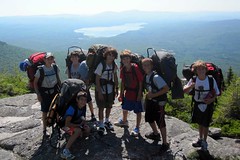 It’s no surprise, really. Camp activities, to be successful, require all the participants to have self-discipline and an unselfish sense of camaraderie. “There is just something about living with a group of boys,” mom Wendy says after sending her only son Justin to camp for the first time. Living communally in cabins and bunks requires teamwork, creativity and a willingness to work together.
It’s no surprise, really. Camp activities, to be successful, require all the participants to have self-discipline and an unselfish sense of camaraderie. “There is just something about living with a group of boys,” mom Wendy says after sending her only son Justin to camp for the first time. Living communally in cabins and bunks requires teamwork, creativity and a willingness to work together.
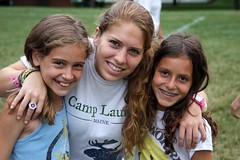
 …do a flip off the Mini-Tramp.
…do a flip off the Mini-Tramp. … flop in the lake…
… flop in the lake…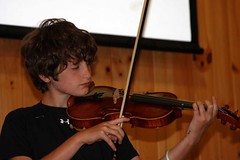 Summer camps make a huge difference in the year-round education of our children, but it may require a shift in our thinking about what education is and can be. The
Summer camps make a huge difference in the year-round education of our children, but it may require a shift in our thinking about what education is and can be. The 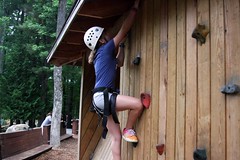 So what kind of difference can summer camp make to your child’s development? As the Executive Director of the
So what kind of difference can summer camp make to your child’s development? As the Executive Director of the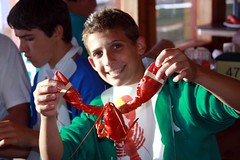
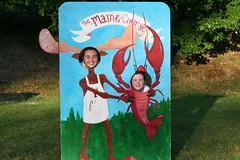 Quest is a tradition that goes back 60 years. During the first week of summer, campers are divided into 18 different teams and they compete in fun and zany activities all day long. The winners are treated to a gourmet Chinese dinner at the home of directors Jem and Debbie. We usually think of big all-camp activities happening at the end of the summer, but Quest brings campers together within days of their arrival, kicking off a summer of friendship and bonding, gathering force as the camp progresses.
Quest is a tradition that goes back 60 years. During the first week of summer, campers are divided into 18 different teams and they compete in fun and zany activities all day long. The winners are treated to a gourmet Chinese dinner at the home of directors Jem and Debbie. We usually think of big all-camp activities happening at the end of the summer, but Quest brings campers together within days of their arrival, kicking off a summer of friendship and bonding, gathering force as the camp progresses.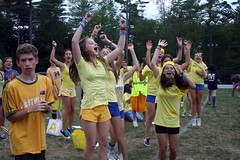 Laurel also hosts College Days and Lobster and Steak Banquet. College Days (which lasts five days!) is Laurel’s answer to the camp color war and includes spirit, fun, games, tug ‘o war, swim meets, track meets, staff competitions, Apache relays, silent meals, treasure hunts, dance competitions and much more. Laurel then finishes camp with a flourish by hosting a meal with lobster direct from the sea. After all, who could come to camp in Maine and not love lobster? The campers finish their summer with speeches, traditional songs and a night sleeping under the stars.
Laurel also hosts College Days and Lobster and Steak Banquet. College Days (which lasts five days!) is Laurel’s answer to the camp color war and includes spirit, fun, games, tug ‘o war, swim meets, track meets, staff competitions, Apache relays, silent meals, treasure hunts, dance competitions and much more. Laurel then finishes camp with a flourish by hosting a meal with lobster direct from the sea. After all, who could come to camp in Maine and not love lobster? The campers finish their summer with speeches, traditional songs and a night sleeping under the stars.